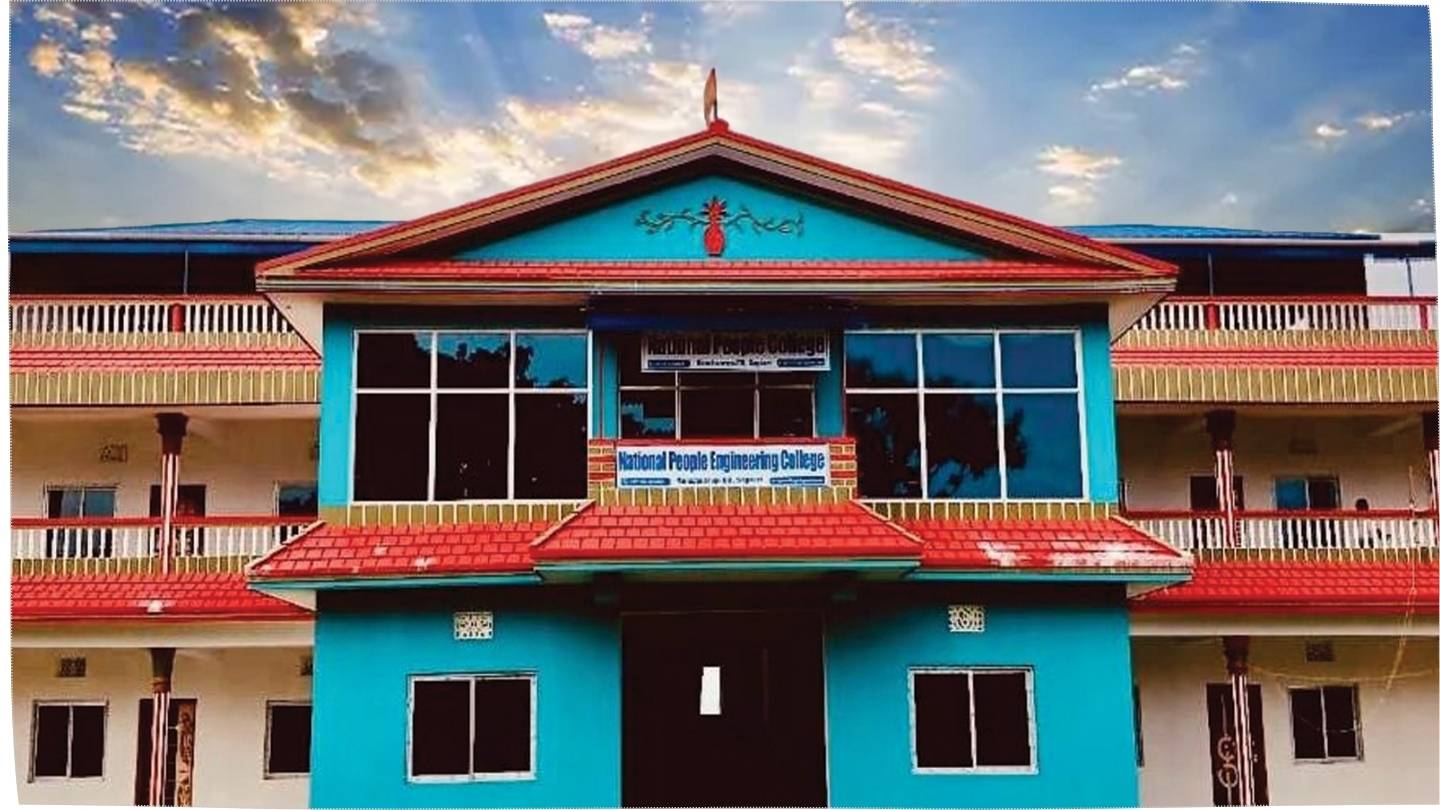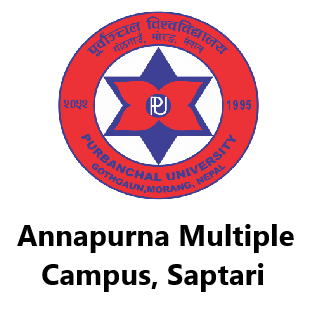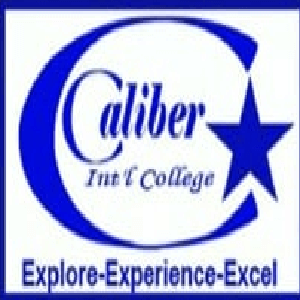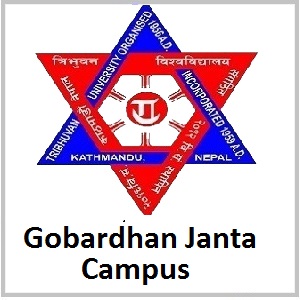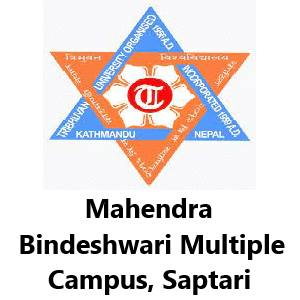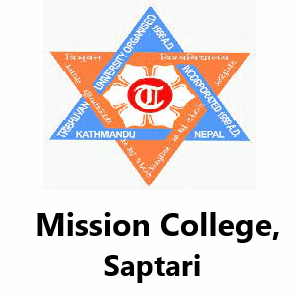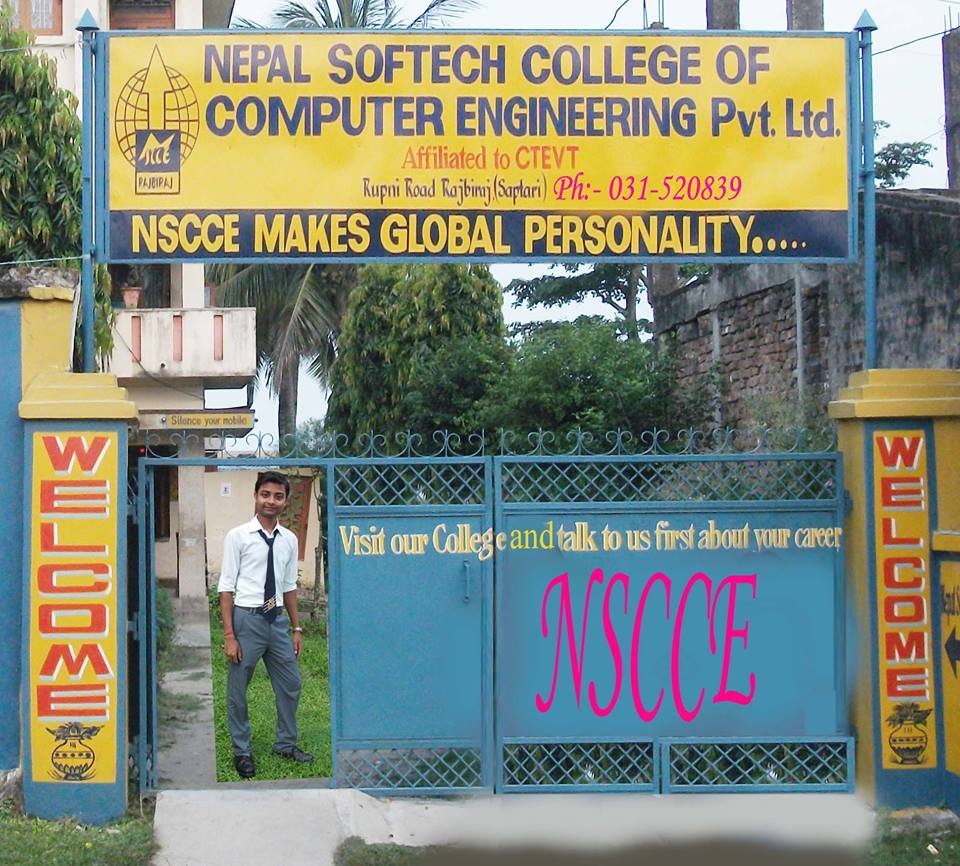Overview
National People College (NPC) was established in 2011 AD. The college runs programs affiliated with Tribhuvan University (TU), Rajarshi Janak University (RJU), and the Council for Technical Education and Vocational Training (CTEVT). NPC offers BBA, BBS, BSW, BA (Sociology, Rural Development, Political Science, Psychology), MBA, MBS, MA (Sociology, Rural Development, Anthropology), and CTEVT diplomas in Civil, Computer, and Electrical Engineering programs.
Introduction
National People College was founded by educators, social activists, professionals, and entrepreneurs who share a commitment to accessible, accountable higher education. The college follows the academic rules and evaluation systems of TU, RJU, and CTEVT. Programs combine classroom study with assignments, field tasks, and guided projects so students can connect theory with practice.
Teaching and support systems include advising, counseling, workshops, and regular feedback. The campus features a library, computer labs, discipline-specific labs, projectors for classes, and spaces for talks and events. The goal is simple: steady learning habits, ethical practice, and consistent progress throughout each term.
Quick Highlights
-
Established: 2011 AD
-
Affiliations: TU, RJU, CTEVT
-
Levels: Bachelor, Master, and CTEVT Diplomas
-
Key Programs:
-
Undergraduate: BBA (RJU), BBS (TU), BSW (TU), BA in Sociology/Rural Development/Political Science/Psychology (TU)
-
Postgraduate: MBA (RJU), MBS (TU), MA in Sociology/Rural Development/Anthropology (TU)
-
CTEVT Diplomas: Civil Engineering (48 seats), Computer Engineering (48 seats), Electrical Engineering (48 seats)
-
-
Learning Support: Library, computer and technical labs, audio-visual classrooms, seminars, workshops, counseling
-
Student Development: Field visits, mini-research, presentations, clubs, cultural and sports events
-
Scholarships: As per university/board rules; additional college aid for eligible students
-
Quality Focus: Curriculum and assessment aligned with the respective affiliating bodies
Academic Programs Offered
Undergraduate Programs
Bachelor of Business Administration (BBA) – RJU
The BBA builds a strong base in accounting, finance, marketing, human resource management, operations, and strategy. Students work on cases, group tasks, presentations, and internship activities. Regular talks by managers and entrepreneurs help students link classroom learning with current business practice. Graduates move toward roles in administration, sales, finance support, or venture creation, or continue with graduate study.
Bachelor of Business Studies (BBS) – TU
BBS covers accounting, economics, business law, and management. The focus is on core concepts, quantitative reasoning, and day-to-day decision support. Coursework includes problem sets, report writing, and policy review tasks. Graduates typically seek roles in banks, offices, trading firms, and NGOs, or apply for MBS/MBA.
Bachelor of Social Work (BSW) – TU
BSW combines theory with supervised fieldwork. Students study human behavior, social policy, research basics, and community engagement. Field placements in social service organizations involve documentation, case reviews, and awareness programs. The degree suits roles in NGOs, local bodies, and community projects, and sets a base for a master’s in social work or related fields.
BA in Rural Development – TU
This program studies rural economy, institutions, and local planning. Students learn rural sociology, project appraisal, and community mobilization. Field tasks may include rapid appraisals, simple surveys, and resource mapping under faculty guidance. Graduates work with rural projects, local governments, and NGOs, or continue to MA in Rural Development.
BA in Sociology – TU
BA Sociology examines society, culture, change, and research methods. Students practice interviews, observation, and basic analysis for small projects. The course supports entry-level roles in social research, media support, public policy assistance, and community programs. Many graduates continue to MA in Sociology.
BA in Political Science – TU
The program covers political theory, public policy, administration, international relations, and comparative politics. Students build skills in analysis, drafting, and argumentation through essays and document reviews. Graduates pursue roles in governance support, civic organizations, research assistance, or law and policy studies.
BA in Psychology – TU
BA Psychology includes cognitive, developmental, social, and abnormal psychology, along with basics of counseling. Students prepare case notes, practice supervised interactions, and write reports. Graduates move into HR support, education services, social programs, or further study in clinical or organizational psychology.
Postgraduate Programs
Master of Business Administration (MBA) – RJU
MBA strengthens leadership, strategy, finance, marketing, operations, and organizational behavior. The college uses case discussions, structured exercises, industry talks, and applied projects. The program suits fresh graduates and working learners aiming for advancement in management or entrepreneurship.
Master of Business Studies (MBS) – TU
MBS deepens knowledge across finance, marketing, accounting, and management science. Students produce research papers and applied analyses of business problems and policy cases. Graduates target mid-level roles in corporate units, service firms, and financial institutions, or move into research and teaching.
MA in Sociology – TU
The program builds advanced grounding in sociological theory and research methodology. Students conduct fieldwork and use qualitative and quantitative tools. Thesis work is supervised. Graduates work in social research, policy analysis, development organizations, and academia.
MA in Rural Development – TU
Focus areas include rural livelihoods, institutions, planning, and policy. Students study project cycles, monitoring and evaluation, and participatory tools. They learn to plan and run rural projects and policies with attention to sustainability. Graduates find roles in government units, NGOs/INGOs, and development agencies.
MA in Anthropology – TU
The degree explores cultural patterns, ethnographic methods, and human variation. Students carry out field immersion and prepare detailed notes and reports. Graduates continue to research, cultural resource management, and policy roles that need strong social analysis.
CTEVT Diploma Programs
Diploma in Civil Engineering – 48 Seats
Core study includes construction materials, surveying, structural basics, estimation, and site supervision. Lab sessions, drawing practice, and site exposure mirror standard tasks in civil works.
Diploma in Computer Engineering – 48 Seats
Students learn programming fundamentals, networking, hardware basics, databases, and system setup. Labs and mini-projects build technical fluency for entry-level roles in IT support, networking, and software basics.
Diploma in Electrical Engineering – 48 Seats
Topics include circuits, machines, power systems, wiring, and safety. Practical sessions focus on tools, testing, and standard procedures. Graduates join maintenance teams, electrical contractors, or continue to higher study.
Admission Process
Eligibility
-
University Programs: As per TU/RJU rules for each level and subject.
-
CTEVT Diplomas: As per CTEVT guidelines on academic thresholds, quotas, and seats.
Steps
-
Inquiry & Counseling: Visit the admission desk to confirm requirements, deadlines, and fee categories.
-
Application: Submit the form with transcripts, migration/transfer papers (if applicable), a copy of citizenship or passport, and photos.
-
Entrance/Interview (if required): Attend the process scheduled by the university/board.
-
Merit & Seat Confirmation: Offers are made per rules, merit criteria, and document checks.
-
Enrollment: Complete fee formalities and collect the calendar, timetable, and student handbook.
Intake & Calendar
Intakes follow the schedules released by TU, RJU, and CTEVT. Notices appear on campus boards and official channels after the relevant bodies publish dates.
Teaching Faculty and Learning Methodology
Faculty members include experienced teachers and professionals who understand classroom work and workplace needs. Teaching combines lectures, guided discussions, tutorials, case tasks, and field assignments. Students present their work, receive feedback, and practice academic integrity in writing and research.
The college promotes:
-
Interactive classes with projector support and structured discussion.
-
Mini-research for basic inquiry skills.
-
Workshops and seminars with invited speakers from academia and industry.
-
Field visits to organizations and sites relevant to each subject.
-
Advising and counseling for study planning and well-being.
Assessment includes internal work and final examinations as per TU/RJU/CTEVT rules. Internal marks may include assignments, presentations, viva, and practicals, which help maintain steady engagement.
Infrastructure and Learning Facilities
-
Classrooms: Bright rooms with projector support for presentations and course delivery.
-
Laboratories: Discipline-specific labs with standard equipment and safety measures.
-
Computer Lab: Systems with subject-relevant software and supervised hours for coursework.
-
Library: Reference books, journals, and a quiet reading space, aligned with course reading lists.
-
Audio-Visual Setup: Projectors, speakers, and a dedicated space for multimedia sessions.
-
Auditorium/Hall: Orientation, guest lectures, cultural programs, and academic gatherings.
-
Cafeteria: Affordable meals and snacks in a clean setting.
-
Administrative Office: Admissions, records, ID issuance, and certification support.
-
Staff Room: Lesson planning, mentoring, and departmental coordination.
-
Transportation: Fixed routes as announced during admission.
-
CCTV Security: Surveillance for a safer learning environment.
Student Life and Campus Experience
Student life balances study with community engagement. Clubs and committees organize talks, reading circles, skill meets, and volunteering. Students learn note-taking, time management, and exam planning through sessions with faculty advisors.
Health, safety, and discipline standards are stated in the student handbook. Attendance and academic honesty are required. Students are expected to care for campus property and support a respectful environment.
Extracurricular Activities (ECA)
-
Sports: Indoor and outdoor activities per the academic calendar; inter-college fixtures when possible.
-
Cultural Events: Festivals, literary programs, and performances that reflect local and national culture.
-
Leadership & Communication: Debates, public speaking, and presentation practice through clubs.
-
Field Trips: Visits to historical, civic, and corporate locations aligned with course outcomes.
-
Skill Workshops: Report writing, presentation design, and basic data handling using office tools.
These activities build confidence, teamwork, and accountability while creating positive peer networks.
Scholarships and Financial Support
-
University/Board Aid: Scholarships follow TU, RJU, and CTEVT rules.
-
College Aid: Full or partial support may be available for high-merit or need-based applicants under published criteria.
-
Process & Deadlines: The admission office publishes forms, required documents, and timelines. Early submission is advised.
-
Continuity: Students on aid must meet attendance and performance standards per policy.
Achievements and Institutional Milestones
-
2011 AD: Establishment of the college.
-
2012 AD: Start of TU affiliations for selected programs.
-
Program Growth: Addition of RJU programs in BBA and MBA.
-
Technical Education: Launch of CTEVT diplomas in Civil, Computer, and Electrical Engineering with approved seat capacities.
-
Academic Events: Regular seminars, guest sessions, and student presentations included in term plans.
-
Facility Upgrades: Library additions, AV-enabled rooms, computer lab updates, and expanded security coverage.
These milestones reflect steady growth based on compliance with awarding bodies and consistent student outcomes.
Why Choose This Institution?
-
Multiple Study Routes in One Campus: TU, RJU, and CTEVT programs provide clear choices for different goals.
-
Applied Learning: Assignments, projects, and site exposure connect study with real tasks.
-
Mentoring and Support: Advising, counseling, and feedback through the term.
-
Daily Study Resources: Library, labs, and AV tools for coursework and exams.
-
Scholarship Windows: University/board schemes and college aid for eligible students.
-
Next Steps After Graduation: Options for higher study or entry-level roles in business, development, social services, and technical fields.
-
Community Focus: Activities that promote respect, responsibility, and teamwork.
Conclusion
National People College offers recognized programs under TU, RJU, and CTEVT with structured teaching, practical tasks, and consistent support. Students choose a path, practice steady study habits, and prepare for further education or early roles in their fields. For current intake dates, entrance rules, or fee categories, applicants should review official notices from the respective bodies or contact the admission office for the latest information.
Contact National People College's administrative office for detailed information on the course, admissions, location, fees, scholarships, facilities, counseling or eligibility.
Contact Details
National People College, Saptari
Email Address: npecollege@gmail.com / info@npec.edu.np
Phone Number: +977-31-560830, +977-9842822830, +977-9851135621, +977-9806060255
Location: Kanchanrup - 8, Saptari, Nepal


